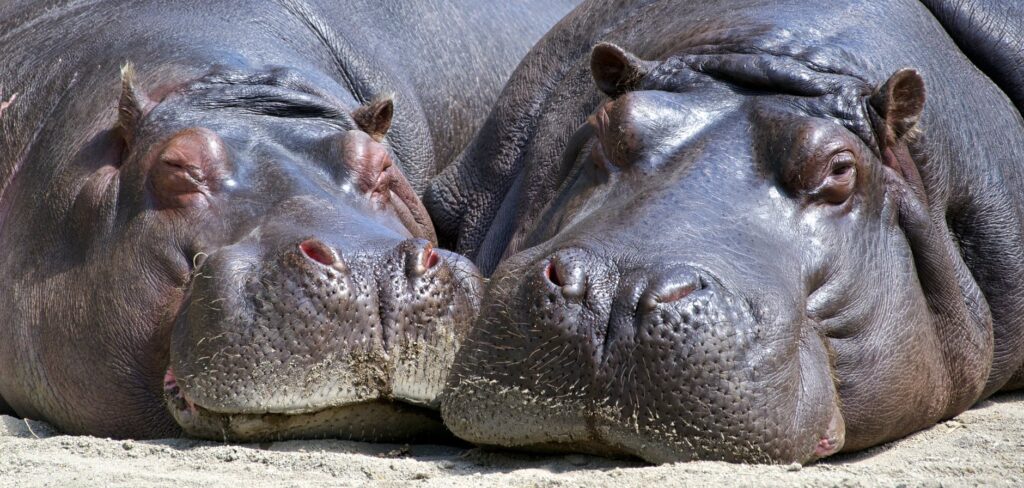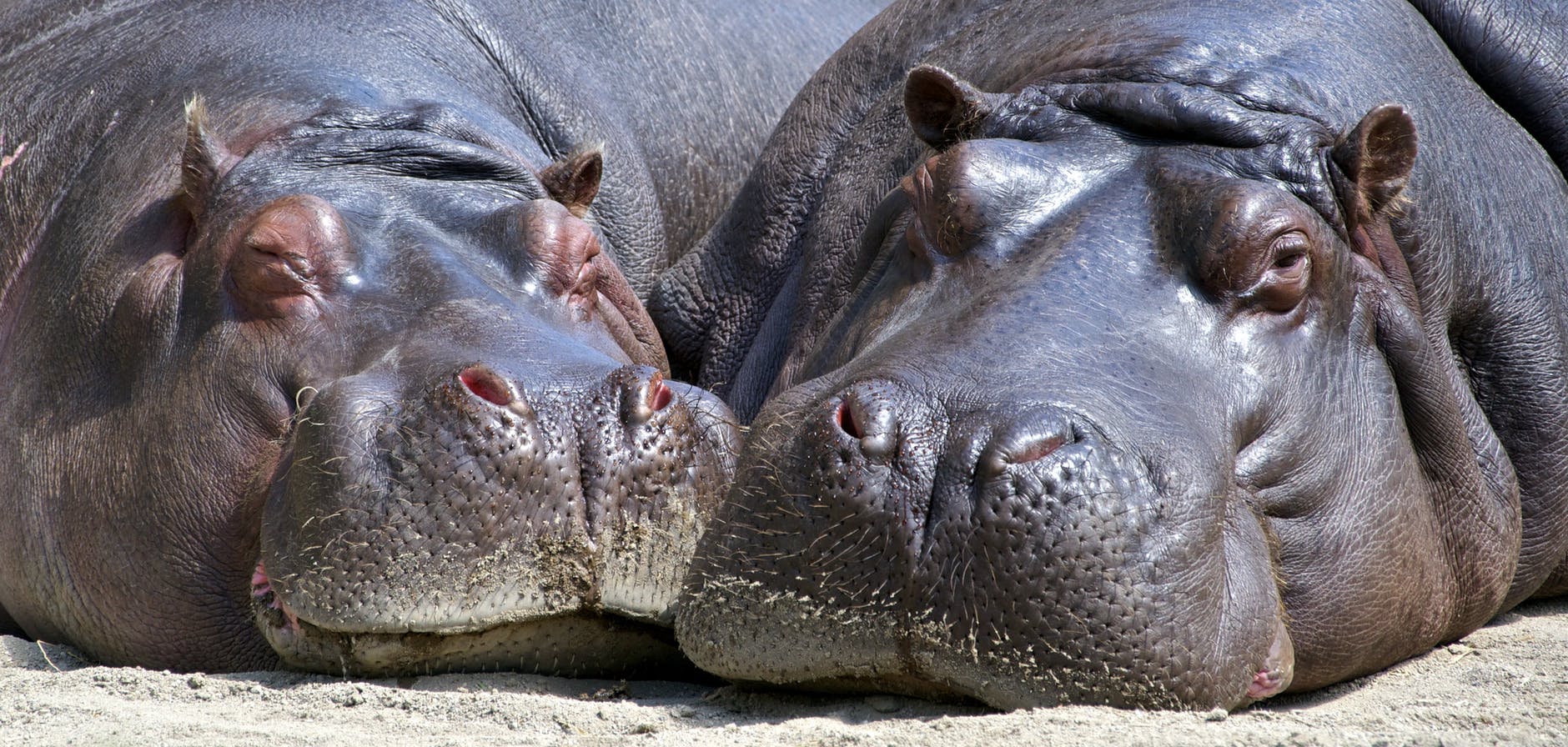We use affiliate links to run our site. When you buy through links on our site, we may earn an affiliate commission, without any added cost to you. Learn more
Hippopotamuses are large, herbivorous animals that inhabit rivers and lakes in Africa and North America. They are classified within the family Hippopotamidae, which also includes the Nile crocodile and gazelle.
The average hippopotamus weighs 2,000-3,600 pounds and can reach a length of 6.5-7.5 feet. Hippos are mostly nocturnal, but may be active during the day if they are hunting or scavenging.
Where do hippos live?
Africa is home to two species of hippos: the common hippo and the pygmy hippo. The common hippo is by far the larger of the two, and can be found throughout much of Africa south of the Sahara Desert.
The pygmy hippo is much smaller, and is limited to a few isolated areas in West Africa.
They live in freshwater habitats near rivers and lakes. They inhabit a variety of ecosystems, including swamps, marshes, and mangrove forests.
Hippos spend the majority of their time in the water but they will also come to shore to graze on grass.
They use their versatile snouts to graze on land and underwater vegetation.
Hippos are able to swim long distances and can hold their breath for up to five minutes underwater.

Do hippos live in water or land?
Hippos are considered semi-aquatic animals because they spend a good deal of time in the water, but they also come onto land to graze. Hippos primarily live in the water during the day time, and at night, hippos typically spend time on land.
They will leave the water to graze on plants, and they often return to the water to sleep.
During the day, however, hippos spend most of their time in the water. They eat and drink there, and they also use the water as a means of cooling off.
Where do hippos sleep:
Hippos sleep underwater. They will find a spot where the water is deep enough so that they can completely submerge their bodies. While sleeping in the water, they surface automatically and breathe without waking up.
The reason why hippos sleep underwater is because it is safe for them. There are few predators that live in the water and those that do aren’t a threat to hippos. Additionally, the water helps keep them cool during the day when it is hot outside.
How well do hippos adapt to different environments?
Hippos are considered one of the most versatile animals in the world when it comes to their habitats. They can be found inhabiting both freshwater and saltwater habitats, as well as a variety of different environments, including forests, swamps, and grasslands.
Hippos are able to adapt so well to different environments due to their highly evolved physiology and behavior. For example, hippos have a low-metabolic rate which allows them to survive in hot climates, and they are also excellent swimmers which helps them thrive in aquatic habitats.
In addition, hippos are very social animals that live in groups which helps them adapt to a variety of different environments.
The physical adaptations of hippos are what allow them to thrive in different environments. Hippos have a layer of blubber that helps keep them warm, and have large hooves that help them move easily through the mud.
Their flexible snouts and nostrils also help them breathe and stay hydrated even when their heads are underwater.

What are the challenges that hippos face when living in different environments?
Hippos can be found living in a variety of habitats, including freshwater swamps, marshes, and lakes; brackish water; and even on the banks of rivers. However, their preferred habitat is in areas with plenty of dense vegetation for cover.
The biggest challenge hippos face when living in different environments is finding enough food to eat. In freshwater habitats, they feed mainly on aquatic plants, but they will also consume insects, fish, and other small animals. Hippos living in other environments must rely on a more diverse diet that includes land-based plants and animals.
Another challenge hippos face when living in different environments is avoiding predators. In freshwater habitats, hippos have to watch out for crocodiles and other large predators.
Conclusion:
In conclusion, hippos are fascinating creatures that inhabit a variety of habitats. But they need our help to protect their habitats.
We hope this article has piqued your interest in these amazing animals. Please share this post to help raise awareness about the importance of preserving their natural habitats.
To learn more, please visit our website or follow us on social media.
Amazon and the Amazon logo are trademarks of Amazon.com, Inc, or its affiliates.
